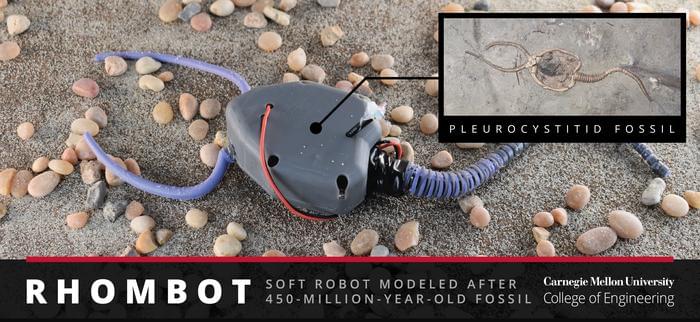A recent study published in the Proceedings of the National Academy of Sciences examines the use of Softbotics to mimic the movements of the ancient marine organism, pleurocystitid, which is estimated to have existed approximately 450 million years ago and is believed to be one of the first marine invertebrates to control their movements with a muscular stem. This study was led by researchers from Carnegie Mellon University and holds the potential to help scientists use a new field known as Paleobionics to better understand the evolutionary history of extinct organisms with paleontological evidence.
Image of a Pleurocystitid fossil (inset) and the pleurocystitid robot replica developed for the study. (Credit: Carnegie Mellon University College of Engineering)
“Softbotics is another approach to inform science using soft materials to construct flexible robot limbs and appendages,” said Dr. Carmel Majidi, who is a Professor of Mechanical Engineering at Carnegie Mellon University and lead author of the study. “Many fundamental principles of biology and nature can only fully be explained if we look back at the evolutionary timeline of how animals evolved. We are building robot analogues to study how locomotion has changed.”
